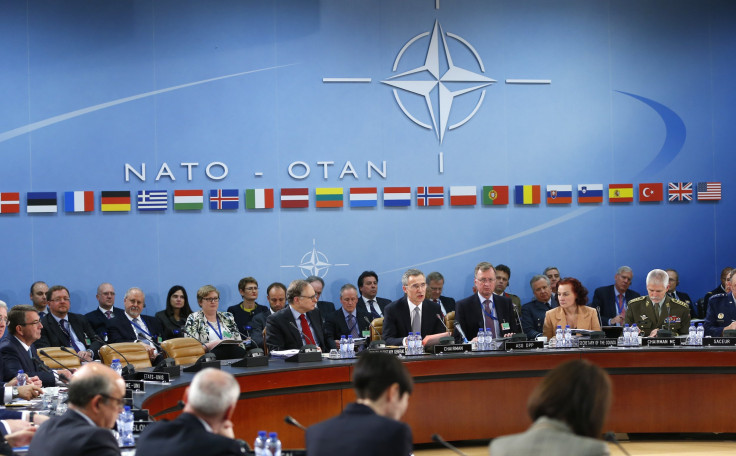Amid Russian Tensions, NATO Prepares To Deploy Troops To Eastern Europe, Baltic Region

All is not quiet on the Eastern European front, and NATO defense ministers are being urged to approve plans to increase the military and political alliance’s presence in the region to deter Russian aggression. NATO members meeting in Brussels Wednesday discussed the need to take bold steps, such as building new alliance outposts, implementing more war games as well as forcing rotations, Reuters reported.
“We need to deploy troops and ships to deter the aggression, the threats that we have seen,” said British Defense Minister Michael Fallon. “NATO means what it says, that we are ready to deter any kind of pressure.”
The U.K. has already agreed to send five ships to the Baltic region as part of NATO’s buildup, the Guardian reported. The Russian government slammed NATO’s discussions, saying the alliance would further destabilize the region.
“We do not understand the reason for such an action. We assume that NATO’s [planned action] threatens Russia and also endangers security and stability in Europe,” said Russian Foreign Ministry representative Maria Zakharova, according to the Moscow Times.
Missed @JensStoltenberg's doorstep at #NATO #DefMin this morning? Watch the video: https://t.co/dZNB6dL3vM
— NATO (@NATO) February 10, 2016
NATO’s move comes after Russia annexed Crimea from Ukraine in March 2014 and a war between Ukrainian government forces and Russian-backed rebels began in the Donbass region. The conflict has left more than 9,000 people dead and displaced more than 1.4 million, worrying the Baltic States and Ukraine’s neighbors about Russia’s potential for further aggression. Poland has called for an increased NATO presence on its territory ahead of the alliance’s major meeting in Warsaw in July.
While exact budgets have yet to be decided, NATO’s move to expand its presence in Eastern Europe will be one of the alliance’s biggest moves in recent years with the potential to have up to 1,000 troops in Bulgaria, Estonia, Latvia, Lithuania, Romania and Poland. NATO’s discussion comes as the U.S. increased its defense budget for Europe to $3.4 billion for 2017.
“I’ll be looking for others in NATO to echo [us] in our investment,” said U.S. Defense Secretary Ash Carter speaking in Brussels. “It’s not going to look like it did back in Cold War days, but it will constitute, in today’s terms, a strong deterrent.”
Russia has continued to deny any direct military involvement in Ukraine and has accused NATO of encroaching on its perceived sphere of influence in Eastern Europe.
© Copyright IBTimes 2024. All rights reserved.






















